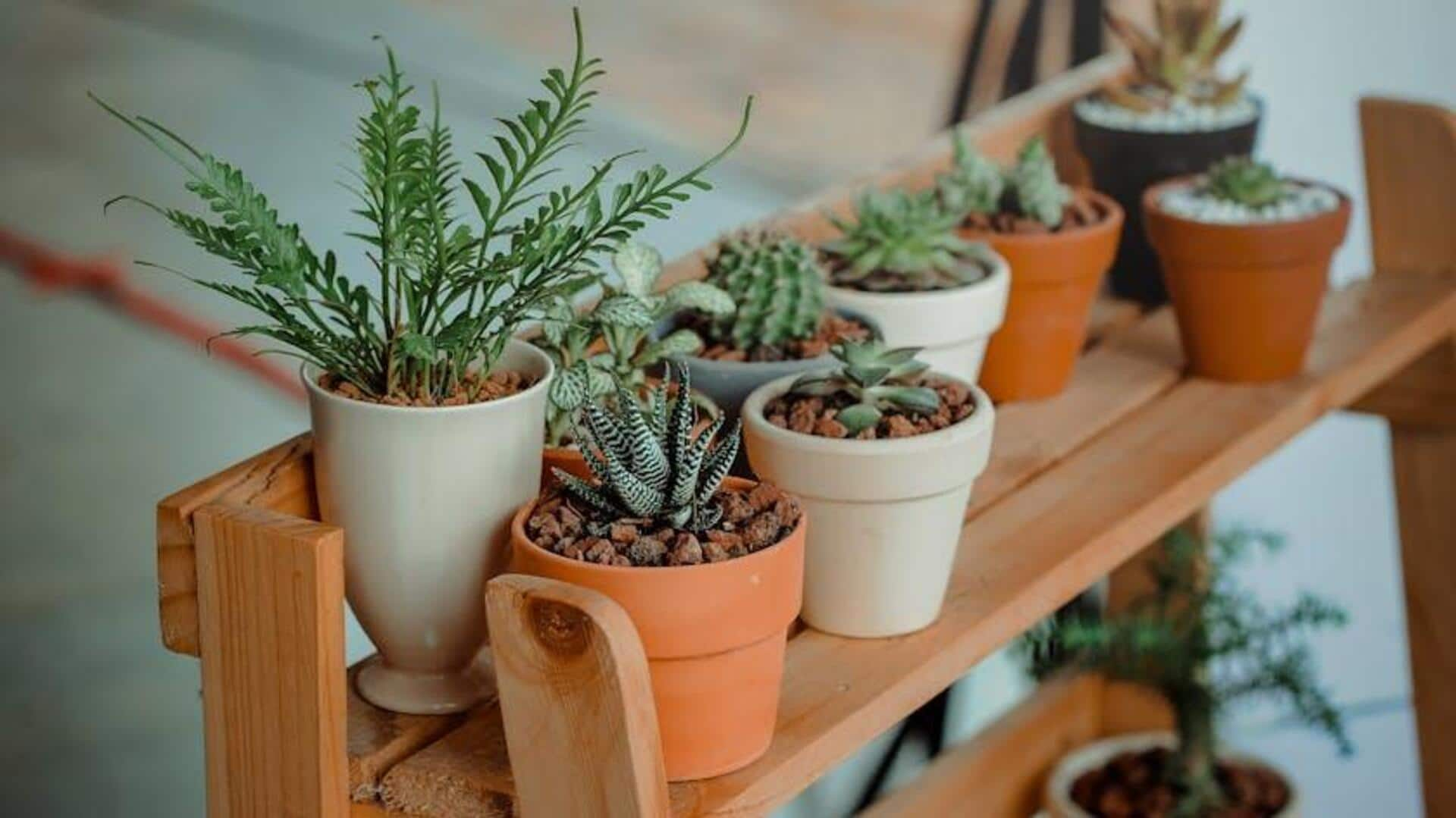
How to prevent root rot in houseplants
What's the story
Root rot is one of the most common problems indoor plant lovers face. It is basically caused when a plant's roots come in contact with too much moisture, causing it to decay and killing the plant eventually. Knowing how to prevent root rot is important to keep your houseplants healthy. Here are some easy tips to make sure your plants live without root rot.
Soil selection
Choose the right potting mix
Selecting an appropriate potting mix is key to preventing root rot. A well-draining soil mix allows excess water to escape, minimizing the risk of waterlogged roots. Look for mixes that contain components like perlite or sand, which improve drainage and aeration. Avoid using garden soil as it tends to compact easily and retain too much moisture.
Drainage solutions
Ensure proper drainage
Proper drainage is essential to prevent root rot in potted plants. Always use pots with drainage holes at the bottom to let excess water escape freely. If your pot doesn't have holes, try adding them or using a liner with holes inside decorative pots. Plus, a layer of gravel at the bottom of the pot can further improve drainage.
Watering practices
Monitor watering frequency
One of the main reasons for root rot in houseplants is overwatering. To prevent this, keep a close eye on how often you're watering according to each plant's needs and the environment. Let the top inch of soil dry out before watering again, and always check if water drains out from the bottom after watering.
Humidity control
Maintain optimal humidity levels
To prevent root rot effectively, ensure that you're maintaining optimal humidity levels around your houseplants. Excess moisture can cause roots to rot away, but that's easily controlled by routinely checking the moisture content in the air with a hygrometer. You should aim for a relative humidity of 40%-60%, and adjust accordingly per plant's needs. This way, your plants aren't exposed to root-rotting conditions.
Health checks
Regularly inspect plant health
Regularly inspecting your houseplants can help catch early signs of root rot. This prevents severe issues, allowing for simpler solutions such as repotting or removing affected parts. It avoids stress on healthy plants and maintains balance in your indoor garden. This practice, established over time, leads to successful plant care and rewarding cultivation experiences.